
11 Jun, 2020
As Thailand eyes victory over the virus, a return to the “Old Normal” seems certain
Bangkok – Thailand is within sight of declaring victory over the dreaded Covid-19 virus. As it is has done through many previous crises over the past 40 years, Thailand overcame what the Foreign Correspondents Club of Thailand (FCCT) called its “celebrated ‘mai pen rai’ culture” to discipline itself and absorb serious short-term pain in order to achieve long-term gain. However, its tourism and business sectors will most likely learn nothing from it. Odds are high that the “New Normal” will revert to the “Old Normal” when the all-clear sounds.
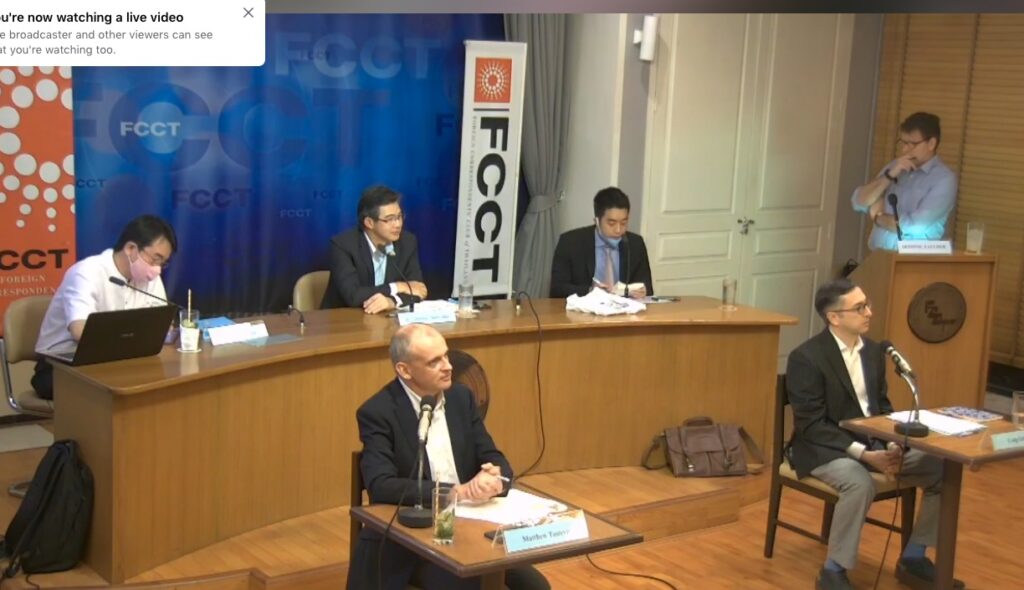 |
A June 9 panel discussion at the FCCT brought together two of the country’s top spokespersons on Covid-19: Dr Thaweesin Visanuyothin, spokesman, Ministry of Public Health (MoPH) and of the Centre for Covid-19 Situation Administration (CCSA), and Dr Tanarak Plipat, deputy director general of communicable diseases, MoPH, along with three other independent observers. They narrated a fascinating story of how the kingdom’s well-prepared health professionals took rapid early action to curb the damage and followed it up with a high-octane public mobilisation and communication strategy to discipline the traditionally laid-back and easygoing Thais. The unprecedented behaviour change has clearly delivered results.
Broadcast live over the FCCT’s Facebook page, the onsite-cum-online interaction with professional journalists gave it a qualitative edge over the boring industry-organised Zoom webinars. More than 200 people watched it worldwide, allowing other countries to learn from the Thai experience.
Indeed, it is a success story with far-reaching implications for Travel & Tourism in a year that was supposed to commemorate the 60th anniversary of the Tourism Authority of Thailand and Thai Airways International. The kingdom has gone from reporting some of the highest number of cases in the early days of the outbreak to virtually insignificant new cases, high recovery rates and lowest death rates. As mentioned by panel moderator Dominic Faulder, FCCT past president and an associate editor with the Nikkei Asian Review, Thailand’s total Covid-19 death rate is equal to that reported by the U.K. in just two hours. The number of infections equates those reported aboard just one U.S. Navy aircraft carrier.
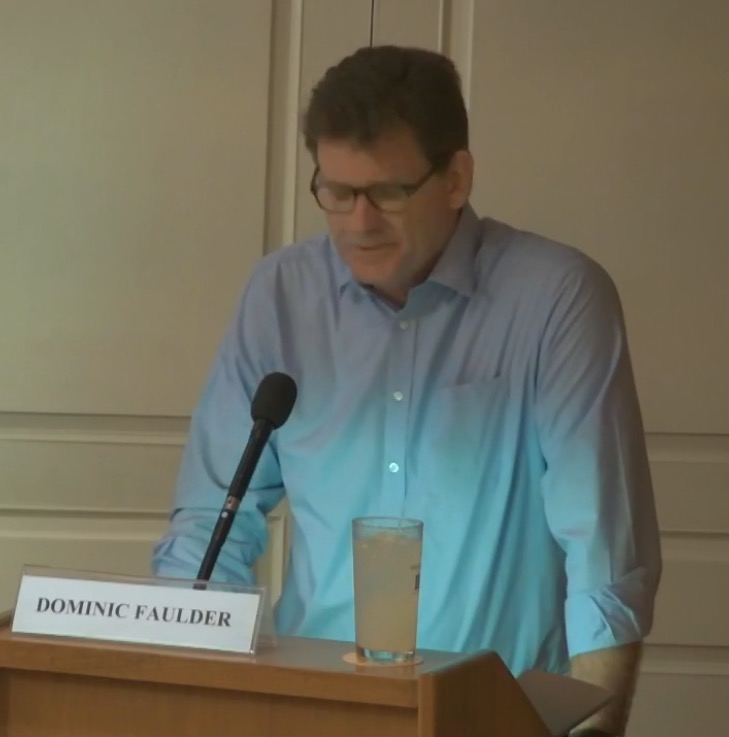 |
How did this happen? The timeline offers an indication.
On 31 Dec 2019, China reported a new cluster of infections to the World Health Organisation. Due to the incoming flood of Chinese tourists, Thailand went on alert as of 3 Jan 2020. The first local Covid-19 case was reported on 9 Jan, and the number grew steadily through January, mostly imported cases. The first local transmission was reported on 31 Jan.
Thai health teams mobilised nationwide to track down all the Chinese tourists and Thais returning from abroad, along with all those whom they could have come into contact with. Nearly 1.04 million health volunteers, mostly women, who normally track down cases of dengue fever and malaria, were redeployed to trace Covid-19 suspects. One returnee Thai student was tracked all the way to his hometown, a 10-hour bus drive away. His entire village and all the other bus passengers were identified and tested. Chinese tourists who reported any symptoms after arrival were taken to hospitals by local Thai guides.
The targeted testing was seen as much more medically- and cost-effective than mass testing. It was good, but not good enough. By March 13, the first sign of a looming disaster emerged when clusters were reported at a boxing stadium and a Bangkok bar. On March 17, the Thai cabinet agreed to a lockdown closure of all high-risk places nationwide. This was followed by more draconian measures such as flight suspensions and a state of emergency effective March 26.
On the same day, as the economic impact began to bite, the CCSA was activated to provide daily Thai and English briefings broadcast live nationwide and across multiple social media channels. These widely-watched updates included one critical measurement indicator comparing the number of cases in Thailand to other countries. The more this fell, the more it inspired the Thai public to stay the course. In less than six weeks, by May 3, the situation had improved enough to start easing the lockdowns.
The economic fallout was severe but victory over the virus was no longer elusive.
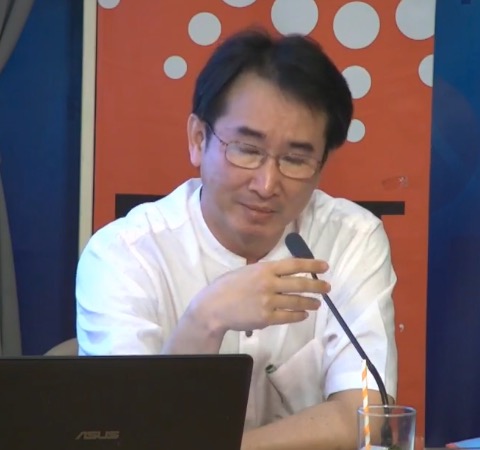 Dr Tanarak Plipat |
Dr Tanarak, a 54-year-old epidemiologist with extensive experience in combatting Thailand’s HIV/AIDS crisis in the 1980s/90s, offered seven contributing success factors:
1) A strong health security system, which is ranked the first in Asia and sixth in the world. “We knew we are good but we didn’t know how good we are. Now we know how good we are.”
2) Timeliness: Health authorities reacted quickly. They mobilised and learnt along the way how to handle each situation.
3) Health experts in the lead: The decision-making was led by health experts “not by others who didn’t know anything.” Most of the recommendations were implemented by the government.
4) Decisive Leadership: The ministries stepped up and took the lead in getting the job done, curbing their traditional penchant for internecine squabbling.
5) Comprehensive multi-sectoral approach amongst both the public and private sectors saw cooperation on efforts such as the work from home. That was not an order but a guidance which everyone followed.
6) Unified communication. Everyone came on board to spread the message through their respective channels.
7) The “Bangrajan Spirit”: In times of crisis, the Thai people unite and help each other. Another sign of this spirit was in 2018 when the country united to bring the 13 young Wild Boars football team members out of the flooded cave in North Thailand.
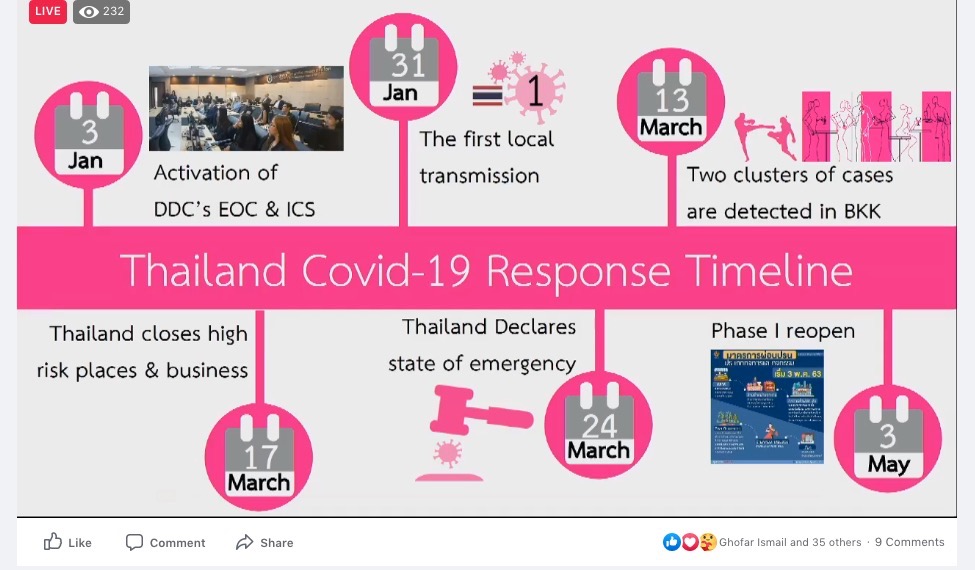
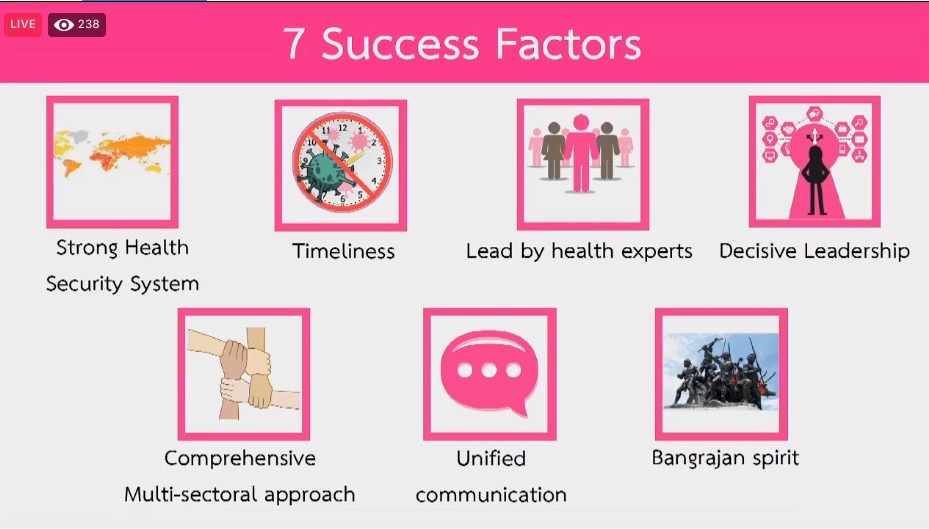
The medical and communication efforts complemented each other. This firstly required ensuring the credibility of the numbers and overcome what initially appeared to be an attempt to under-report them. Two other panel members, Craig Griffin, chief insight officer at Fuel Research and Consulting, and Matthew Tostevin, Southeast Asia editor, Reuters, confirmed that they had found no evidence of any numbers-fudging.
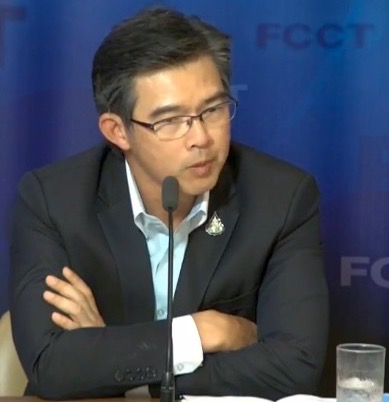 Dr Thaweesin Visanuyothin |
The communicator chosen to be the public face of the campaign was Dr Thaweesin, 55, a psychiatrist with a photogenic stage presence and public persona. Although he has worked at Bangkok’s Samitivej hospital, where his area of expertise is described as “erectile dysfunction,” Dr Thaweesin is closely attached to the Ministry of Public Health.
He told the panel that his 20+ years as a psychiatrist came in handy. “You have to be skilled in (probing the) personal history of patients to understand their background. And you have to be apt at using language.” During the 1997 economic crisis, he was amongst a team of psychiatrists deployed by the government to field phone calls from people dealing with depression, stress and suicidal tendencies. Both then and now, it was all about reducing public stress and boosting morale.
He said the strategy was to raise the public’s level of confidence in the information being imparted. The communications plan had to tackle the then rapidly evolving medical situation, summarise the complexity of the process, counter fake news, and get the message out in a direct and simple way to educate the public and persuade them to observe basic precautionary measures. A sense of fear, panic and misunderstanding had to be transformed into courage and action. “When the public is in the right frame of mind, they are wiling to accept the message,” he said. “It requires wholehearted public cooperation – a minimum of 90% to flatten the curve, 70% is not enough and 80% is still too risky.”
It worked. With the situation now under control, life is re-adjusting to the so-called “New Normal”. The tourism sector is getting fidgety, but the government is sticking to a slow but steady approach. Domestic travel is getting priority with restrictions on inter-provincial travel totally lifted. Resuming international travel is still work in progress. Talks are under way to first allow in executives of international companies who need to be stationed in Thailand. When regular visitors are allowed in, they may be required to have high health insurance coverage.
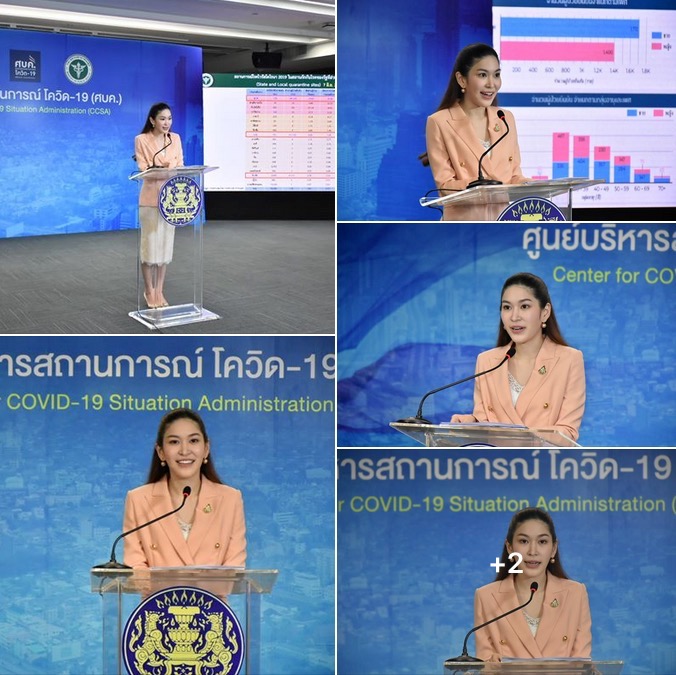
Another reassuring face of the CCSA communications campaign, Dr Panprapha Yongtrakul, Deputy Spokesperson. She was crowned Miss Thailand 2008.
However, the panel showed clear signs that the “New Normal” will revert to the “Old Normal” when one of the most unpopular lockdown measures, a ban on sale and public consumption of alcohol, is lifted. The last question of the event was when this would happen.
Required to prevent a return of Covid-19 via the ever-popular fraternal drinking sessions, the ban delivered other positive results, such as a one-third fall in nationwide road accidents over the traditional Songkran Thai New Year period in April, when the numbers peak. A leading cause of domestic violence and sexual abuse, alcohol kills more people in one day of the Songkran holiday than the entire casualty count of Covid-19 thus far. This, in spite of the fact that Thailand is a majority Buddhist country, as Dr Thaweesin himself pointed out. The fifth precept of Buddhism is to avoid intoxicants such as alcohol. Buddhist and anti-alcohol groups campaign to counter-balance the drinking culture, which is just as strongly ingrained in Thai society as Buddhism.
It is a stark contradiction in terms, but it exists.
The alcohol ban is due to be lifted at the end of June. The tourism industry and entertainment sectors are waiting. So is the FCCT and Dr Thaweesin, too. He said, “I too am waiting for the alcohol ban to be lifted.”
The Old Normal is already on the horizon.
Other wider challenges loom. The success of the strong preventive measures could be attributed partly to the presence of a military-controlled government. The fear is that the same measures used to curb a virus could be used in future to curb democratic opposition voices. The usage of the term “Bangrajan Spirit” was deliberate. It refers to a chapter in history when the Thais valiantly fought invading Burmese forces, a threat to their national security. Covid-19 is certainly a “national security threat”. In the post-Covid era, that term could take on new meaning.
As the clouds lift, complacency will make a comeback. The next crisis is just around the corner, and the odds are that history will repeat itself. Thailand is good at uniting when crises strike, and then going back to Business As Usual when they recede.
Will it now break the cycle and Build Back Better? Time will tell.



Liked this article? Share it!